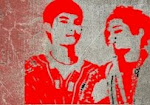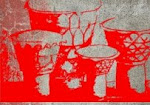
Mike Banos
December 01, 2008
An article published in
American Chronicle and Kagay-an.com
A home-grown initiative seeking to link indigenous youth artisans and affluent youth consumers in Manila and Mindanao has been recognized as one of the three winners in the I Am A Changemaker Competition of British Council Philippines.
Rhyan Casiño's Dire Husi: Interconnecting Indigenous Young Artisans and Young Urban Fashionistas through Fair Trade (Intercultural Dialogue) was adjudged the winner for Mindanao following the final phase of the competition last 22 November at The Linden Suites, Ortigas Centre, Pasig City.
Prior to the panel presentation, the top 15 proposals were uploaded on the British Council website for on-line voting from 5-15 November. Based on scores from the preliminary judging and points garnered from online voting, the top three project proponents from Luzon, Visayas and Mindanao were selected by a five member judging panel, representing leaders from business, the academe, government and social entrepreneurs based on the panel presentation, the final stage of the competition.
The three finalists representing each region received a PhP 100,000 grant each for the implementation of their projects within a 6-month period. In addition to the prize money, a project management training will be provided to members of the winning organization in order to strengthen their internal capacity to deliver their projects.
I Am A Changemaker was one of the British Council's activities to mark the first ever Global Entrepreneurship Week last 17-23 November .
Casiño's project bested two other finalists from Mindanao: Acting Towards Change ( Intercultural Dialogue/ Environment ) by the Kids for Peace Foundation of Cotabato City and ALEY-NM Living Museum Project (Environment/ Education) by the Association of Locally-Empowered Youth in Northern Mindanao, Initao, Misamis Oriental.
I Am a Changemaker is a project grant competition for school and community-based youth organizations on how development issues and concerns on education, the environment, and/ or intercultural diversity can be addressed through youth leadership and social entrepreneurship.
The British Council defines diversity in terms of its mission to promote positive social change through building trust, increasing understanding, reforming cultural stereotypes/perception, and countering misinformation and prejudice through intercultural dialogue.
I Am a Changemaker sought to encourage the participation of young people in addressing issues and concerns regarding education, environment, and intercultural diversity as proactive citizens and development partners; strengthen the delivery mechanisms of youth-led development projects by providing a 3-day project management workshop and by periodic mentoring; create a sustainable community of young people who can share their experience of implementing community-based projects through entrepreneurship; and establish a functional network of youth organizations that would complement the British Council Philippines on its development initiatives
Project proposals should address issues and concerns on education, environment, and/ or intercultural diversity; espouse youth leadership and social entrepreneurship; and promote a consultative and participatory process to ensure ownership and enhanced sustainability to promote community-based entrepreneurial activities
Casiño's project, "Dire Husi: Interconnecting Indigenous Young Artisans and Young Urban Fashionistas through Fair Trade (Intercultural Dialogue)" was presented by his cottage industry
Dire Husi Crafts and Accessories from Iponan, Cagayan de Oro City .
In his project proposal, Casiño said "Dire" (Visayan for here) "Husi" (Manobo for friend) aims to connect the "affluent and comfortable" young people in urban areas of Mindanao to the "marginalized and disadvantaged" young artisans of Northern Mindanao through a uniquely tangible foundation of youth culture: Fashion Accessories.
"Through necklaces with terracotta clay pendants, amulets with delicately crafted carvings and semi-precious stones, bracelets with indigenous colors and patterns, anklets with coco-shells and cow-bones shaped into elegant forms," Casiño said. "Small, creative products that are hip, but act as a meaningful reminder that young people are making their way out of poverty; that connection and communion are possible; that after all, both marginalized and affluent young people have a friend somewhere."
Fair Trade can make that "interconnection" possible, he stressed.
Casiño noted that indigenous, out-of-school-youth artisans from Northern Mindanao, who moved away from their native domains to search for a better life in the city (Cagayan de Oro), have demonstrated their intrinsic talent and expressed their identities through the creation of indigenous design-inspired necklaces, bracelets, accessories, and amulets. The youth social enterprise created by Casiño with partners from the indigenous youth artisans in 2004 called "Dire Husi" has provided more than 500 young Manobo, Higaonon, Umayamnon, Tigwahanon, and Matigsalug people with alternative sources of income.
"Although their products are artful, unique, and beautifully raw, they find it difficult to sustain their operations because they could not penetrate into a wider, fairer, market: a market where their products/"artworks" can be valued, sold, and priced with dignity," Casiño noted.
Fortunately, the Dire Husi proponents didn't have to look far. They perceived the emerging youth sub-culture characterized by social and environmental awareness, especially among university and college students in urban areas in Mindanao (Cagayan de Oro, Davao, and General Santos City), and Metro Manila, as the 'springboard" for a new hip, socially and environmentally cool buying behavior, a fire starter of a more "evolved" fashion sense.
"And this could only mean one thing for Dire Husi, the emergence of a sustainable, ready-market for their products," Casiño noted.
With the proceeds from their prize money, Casiño said Dire Husi would explore further ways to buff up the business viability of their enterprise, affirm and enhance the "self-actualizing" value of creative expression among young artisans, and attempt to reach the 'untapped' socially conscious youth markets in urban areas, especially in Cagayan De Oro City, and Metro Manila.






























